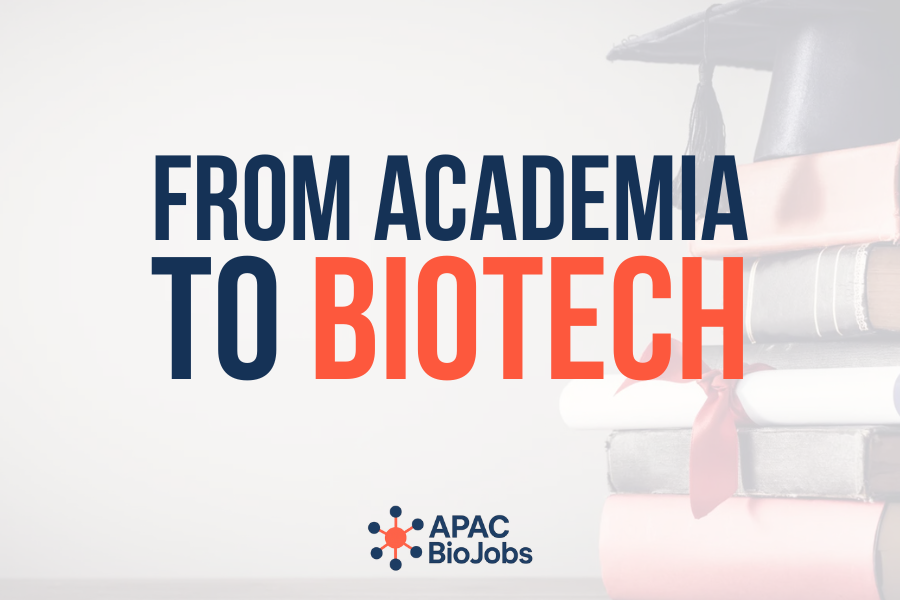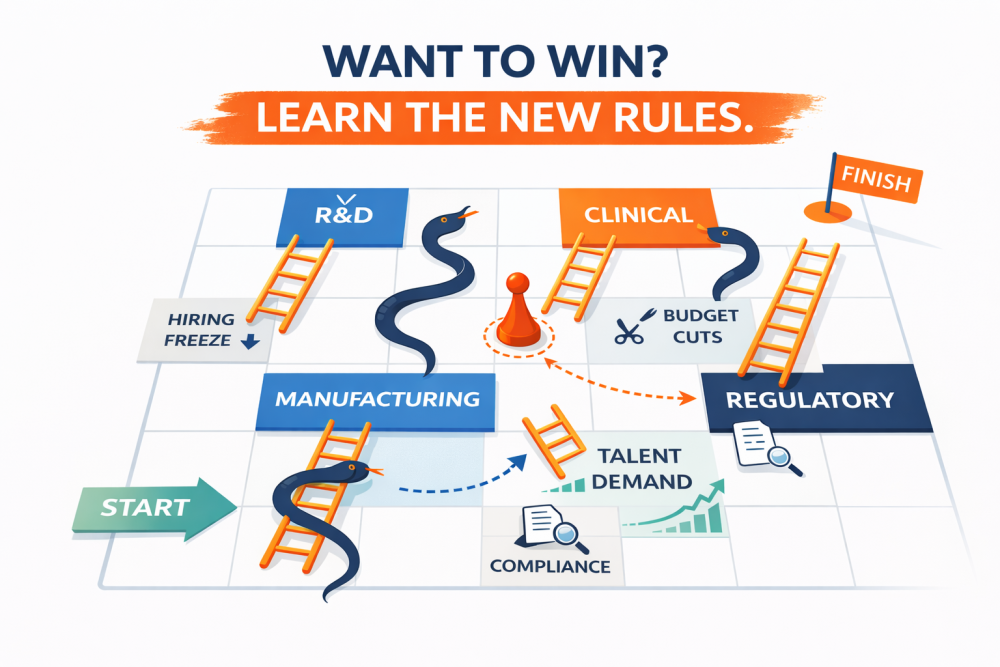
Leaving academia for industry can feel like stepping into a different world - faster pace, new expectations, and unfamiliar career paths.
But here’s the truth: biotech companies need people like you - scientists, researchers, and postdocs who understand complex biology and can turn discoveries into real-world applications.
Whether you’re finishing your PhD or managing a research group, this 2025 guide will help you successfully transition from academia to industry in biotech.
🧭 Step 1: Understand How Industry Differs from Academia
The biggest mindset shift?
In academia, success is measured by publications and discoveries.
In industry, it’s measured by deliverables and results that impact products, patients, or processes.
Here’s how the two worlds differ:
- Academia focuses on open-ended research; industry focuses on defined project goals.
- Academic success means publishing papers; industry success means delivering results.
- Academics work more independently; industry thrives on cross-functional collaboration.
- Funding cycles in academia are replaced by product timelines in biotech.
💡 Tip: Don’t see it as leaving science - think of it as applying science differently.
💼 Step 2: Identify Your Transferable Skills
You already have many of the skills biotech employers want - you just need to translate them into their language.
Instead of saying:
- “Supervised graduate students” → say “Led cross-functional project teams.”
- “Published in peer-reviewed journals” → say “Communicated complex data to diverse stakeholders.”
- “Designed experiments” → say “Developed and optimized experimental workflows.”
Focus your resume on:
- Data analysis and problem-solving
- Project management
- Collaboration and communication
- Technical expertise in biotech-relevant tools
🧬 Step 3: Choose the Right Industry Path
Biotech offers a wide range of roles beyond traditional bench science.
Here are some examples:
R&D and Drug Discovery: Research Scientist, Cell Biologist, Assay Developer
→ Best for those who enjoy hands-on lab work.
Clinical Research: Clinical Trial Associate, CRA, Medical Writer
→ Great for scientists who want to bridge research and medicine.
Data & AI: Bioinformatician, Biotech Data Scientist
→ Ideal for those who love analytics and coding.
Regulatory & QA: Regulatory Affairs Specialist, QA Manager
→ Perfect for detail-oriented professionals who value precision.
Commercial & Strategy: Scientific Sales, Product Manager
→ Fits those with strong communication and business acumen.
🎯 Tip: CROs, biopharma companies, and biotech startups are often most open to academic talent.
📜 Step 4: Build an Industry-Ready CV
An academic CV isn’t the same as an industry resume.
Focus on:
- Results over publications (e.g., “Improved assay yield by 25%”).
- Skills over theory (list your lab techniques, software tools, or regulatory knowledge).
- Impact over titles (describe how your work advanced a project).
🧠 Keep it concise - ideally two pages or less.
🗣️ Step 5: Network Strategically
In biotech, many roles are filled through referrals and networking.
Start by:
- Joining biotech associations like BioSingapore, AusBiotech, or the Japan BioIndustry Association.
- Attending webinars and conferences such as BioAsia or BioJapan.
- Connecting with professionals for informational interviews - short, casual chats to learn about roles and culture.
💬 Tip: Networking gives you insider knowledge that helps tailor your applications and interviews.
⚙️ Step 6: Bridge the Gap with Industry Experience
If you’re still in academia, you can start building industry exposure now:
- Collaborate with an industry partner on a project.
- Take short courses in regulatory affairs, bioinformatics, or project management.
- Apply for internships or fellowships open to postdocs and PhDs.
These small steps show initiative and adaptability - traits biotech companies value highly.
🌍 Step 7: Target Entry Points That Welcome Academic Talent
Some organizations are especially open to newcomers from academia:
- CROs (Contract Research Organizations) - they frequently hire scientists across diverse projects.
- Government or university spin-offs - ideal for bridging academia and commercial R&D.
- Startups - value initiative and flexibility over years of experience.
💡 Tip: Be open to short-term contracts or research associate roles. They often lead to permanent positions once you’ve proven your value.
🚀 Step 8: Adopt the Industry Mindset
Transitioning isn’t just a job change - it’s a new way of thinking.
Remember:
- Think outcomes, not experiments.
- Think teamwork, not independence.
- Think progress, not perfection.
You’re not leaving science - you’re joining its real-world impact.
🎯 Key Takeaways
- Translate your academic experience into business and product value.
- Network early - before you need a job.
- Keep your CV short and impact-focused.
- Start with CROs, startups, and applied R&D roles to build industry experience.
👉 Ready to make your move?
Explore the latest biotech roles across Asia-Pacific on APACBioJobs.com - the region’s leading platform for biotech and life sciences careers.


